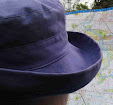Crowds outside The Argus newspaper office, waiting for a Special
Supplement Melbourne, 5 August 1914. Australian War Memorial
Collection H11612.
WAR NEWS IN THE CITY.PATRIOTIC DEMONSTRATION.RUSH FOR NEWS.Whatever the statement of Britain's intentions made by Sir Edward Grey in the House of Commons may mean- whether it may be regarded as an ultimatum or a polite hint- the general feeling in the city yesterday was that it was tantamount to a declaration of war. The news of the speech was upon the streets at a quarter past 7 o'clock, when a special edition of "The Argus" gave the text of the Cabinet's decision. The papers were eagerly bought up by the business people as they came into town. And after the news was out no body spoke of anything else. Strategists examined how the German fleet, bottled up in the Baltic, would never dare to come out into the Channel to face the might of England. The general opinion was that Britain had inevitably cast in her lot with France and Russia.As the day wore on excitement grew. At about 1 o'clock the crowds began to gather in front of "The Argus" office, where a second special edition was announced to be in the press. The printers were besieged by hundreds of boys who fought each other for places and by the citizens as well, who wanted their single copies of the special edition. Each batch, as it came from the presses, melted like snow and the boys ran through the city crying the news. There had never perhaps been such excitement about a special edition of any Melbourne paper. Later on these editions penetrated into the suburbs where the boys carried them from house to house.At lunch time the people poured up Collins street and crowded the block, reading the special editions, and discussing the war. Everybody, though convinced that within a very short period of time Britain would be at war, kept calm. There seemed to be a general feeling that the fleet would come through any ordeal with credit. The banks reported no special rush of business in the way of withdrawals.
The excitement in the city became more intense as the night wore on and to keep the large crowd within bounds troopers and extra foot constables were called out. It was necessary for the police to take stern measures to suppress the exuberance of gangs of youths, whose conduct at times threatened to cause trouble. Dense crowds remained in Collins street in front of the newspaper office until long after midnight, cheering and singing the National Anthem."GOD SAVE THE KING"A loyal demonstration spontaneously breaking out at the Vienna Cafe showed how full were the minds of all of the news from Britain. During the lunch hour, when the cafe was crowded, the band played "Rule Britannia" and at the end of this patriotic piece the guests cheered. The band went on to play a verse of the National Anthem, which was sung by all assembled and this was followed by three hearty cheers for the British navy.The special editions ceased during the afternoon and the news, posted outside the newspaper offices, kept an interested crowd about the boards. When at about 5 o'clock the crowd of city workers made for home they walked slowly and lingeringly down Swanston street and Elizabeth street for further war editions.EVENING DIVERSIONSEvening brought them in again to stand before the newspaper offices in greater crowds than during the hours of daylight. To enliven the time between the successive postings of news the boys sang patriotic songs. One of them waved a British flag, amid cheers for England and groans for Germany. Then they formed up and marched up and down Collins street singing "Sons of the Sea" and other martial songs. The arrival of the Senior Cadets at the Town Hall for the ceremony of drifting into the Citizen Forces was the signal for immense excitement.
WAR NEWS IN THE CITY. (1914, August 5). The Argus (Melbourne, Vic. : 1848 - 1957), p. 8. Retrieved August 4, 2014, from http://nla.gov.au/nla.news-article10800651






.png)







No comments:
Post a Comment